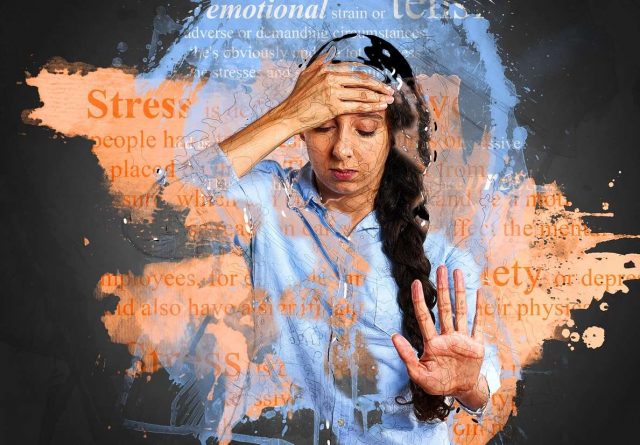Millions of individuals all around the world struggle with anxiety, which is a prevalent mental health issue. While many treatments and drugs are available to reduce anxiety, some people choose cannabis, mainly THC, as an alternative medicine.
The primary psychoactive component in marijuana, THC, has been demonstrated to have anxiolytic effects. However, utilizing THC to treat anxiety necessitates careful consideration of several crucial aspects, including dosage, strain type, and ingestion strategy.
You may use the information in this article to help you decide whether to use THC for anxiety management by delving deeply into these issues and offering insightful analysis.
7 Things You Should Consider When Having THC to Deal with Anxiety
If you’re considering using THC to manage your anxiety, there are several factors to remember to ensure a safe and effective experience. Here are seven things to consider:
Method of Consumption
THC’s effects on anxiety can also vary depending on how you take it. For example, the effects of inhalation techniques, such as smoking or vaping, are almost instantly noticed. Therefore they can offer prompt relief. Yet, the quick onset of THC’s euphoric effects might also hasten the start of unpleasant anxiety symptoms.
On the other hand, while they can take a bit longer to work, foods and oils might offer long-lasting comfort. This is because THC is metabolized differently by the stomach and respiratory systems. By considering the consumption mode, people can find the best strategy to manage their anxiety symptoms while reducing any potential side effects.
Set and Setting
THC’s effects on anxiety can be considerably influenced by the setting and frame of mind in which it is used. To minimize potential triggers that can worsen anxiety symptoms, consuming THC in a secure and comfortable environment is crucial.
This involves choosing a tranquil setting where you feel relaxed and at ease. When consuming THC, avoid chaotic or crowded areas where you can feel overwhelmed. Also, when taking THC to treat anxiety, it’s critical to be aware of your attitude.
In contrast to a pessimistic or nervous outlook, which may increase anxiety symptoms, maintaining a happy and calm attitude can enhance the therapeutic effects of THC.
Timing
THC’s effects on anxiety symptoms can also vary depending on when it is used. For example, THC can make you sleepy or impair your cognitive function, so using it too early in the morning or too late at night may make it difficult for you to function normally.
THC use during periods of intense stress may further exacerbate anxiety symptoms by amplifying feelings of paranoia or uneasiness. When you can unwind and relax, such as in the evening or on a quiet weekend, it’s good to use THC.
Those who use THC strategically can effectively control their anxiety symptoms while still being able to function and engage in their everyday activities.
Dosage
It’s crucial to start with a low dose of THC and gradually raise it as needed to treat anxiety. Overwhelming emotions of anxiety or panic can result from consuming excessive amounts of THC at once, which can be unpleasant and sometimes dangerous.
You can gauge how your body reacts to THC by starting with a modest amount and adjusting as necessary. However, it’s also crucial to remember that everyone has a different tolerance to THC, so what could be a modest amount for one person might not be for another.
To manage your anxiety symptoms safely and successfully, you can find the ideal THC dosage by starting with a low dose and progressively increasing it. For instance, 100mg Delta 8 gummies might be the better start dosage for you instead of going rough at first!
Frequency
Regular use of THC can lead to tolerance, which means that larger doses may be needed to achieve the same effects over time. This can potentially worsen anxiety symptoms and other negative effects of THC.
To avoid tolerance buildup and mitigate any potential negative effects, it’s important to use THC only as needed and take breaks between use. This allows the body to reset and reduces the risk of developing a tolerance.
Additionally, taking breaks can help individuals maintain control over their THC use and prevent it from becoming a habit or addiction. By using THC mindfully and taking breaks, individuals can safely manage their anxiety symptoms without the risk of tolerance and adverse effects.
Other Medications
It’s crucial to remember that THC can interact negatively with other pharmaceuticals, especially prescription drugs, which could negatively impact your health.
Hence, before using THC to treat anxiety, especially if you are already taking prescription meds, it is imperative to speak with your doctor. The advantages and disadvantages of using THC can be discussed with your doctor, who can also advise you on any possible drug interactions.
Doing so may ensure that you utilize THC safely, effectively, and without interfering with any other treatments you may be receiving.
Strain Type
It’s crucial to remember that different cannabis strains affect anxiety management differently. In addition, various strains have varying concentrations of THC and other substances, which can have distinct effects on anxiety symptoms.
CBD has been demonstrated to have soothing characteristics and may be beneficial in controlling anxiety, whereas THC is known for its psychoactive effects.
Try strains with a greater CBD-to-THC ratio since they may offer the advantages of THC while reducing any potential adverse effects on anxiety. You can find the best mixture to safely and successfully treat your anxiety symptoms by experimenting with various strains and ratios.
Conclusion
In conclusion, some people may find using THC to manage their anxiety beneficial, but doing so necessitates a careful evaluation of several crucial aspects.
A safe and successful experience depends on many factors, including dosage, strain type, ingestion technique, time, frequency, and potential drug interactions.
Those who want to use THC to manage anxiety can do so by carefully considering these considerations and consulting a healthcare expert. Always put your safety and well-being first, use THC cautiously, and practice mindfulness.


